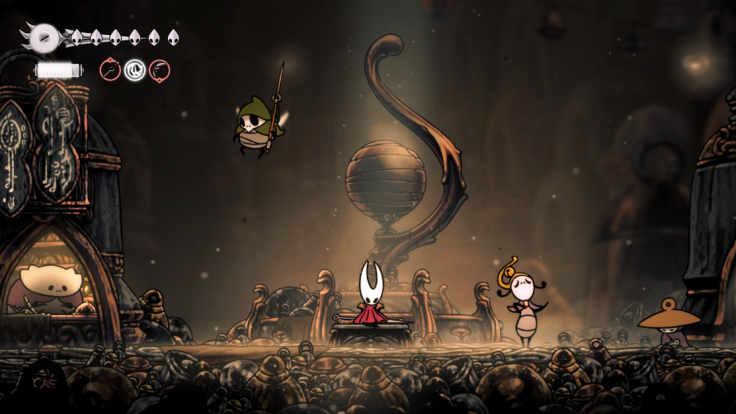"Hollow Knight: Silksong" has been perhaps the most eagerly awaited indie game of the last decade. Seven years of development later, fans are finally closer than ever to experiencing Team Cherry's sequel to the critically acclaimed "Hollow Knight."
What started as a modest downloadable content (DLC) endeavor expanded into a full game, increasing its lifespan but offering more depth and magnitude.
Why Did 'Hollow Knight: Silksong' Take So Long?
Silksong's development began from the premise of doing it as DLC to the original "Hollow Knight." As Team Cherry grew the scope, though, the project grew too big to be an add-on anymore.
According to TipRanks, developers William Pellen and Ari Gibson acknowledged that their vision only continued to expand, leading them to push back the release once more.
In the words of the duo, the past two years involved intense polishing on gameplay mechanics, combat refinement, and more improvements that have made Hollow Knight's world so rich. Rather than hurriedly launching, the team felt it should prioritize quality to ensure "Silksong" lives up to the high standards its predecessor set.
Why Did Team Cherry Stop Sharing Updates?
Following the official announcement of the game on February 14, 2019, "Hollow Knight: Silksong" fell into virtual radio silence. This angered many fans, but the decision was deliberate. Team Cherry desired to keep the game's secrets under wraps.
The hiatus has rapidly turned into an internet meme, with supporters playfully suggesting "Silksong" would never come out. That silence will be broken when the game comes out next month, according to VGC.
Where Will 'Hollow Knight: Silksong' Sell the Most?
With millions of fans waiting, demand for "Hollow Knight: Silksong" is enormous. On Steam alone, the game already sits on 4.8 million wishlists, pointing towards immense goodwill among PC players. This puts PC as one of Silksong's most powerful launch markets.
When consoles are in question, both Nintendo Switch and PlayStation should do well. Switch fans, who traditionally embrace indie games, will push sales to impressive levels. PlayStation has a worldwide user base that also promises high figures.
Meanwhile, Xbox sales will be smaller, considering its smaller install base. But analysts are upbeat on Microsoft overall, thanks mostly to its AI technology advances and not Xbox's gaming division.

















